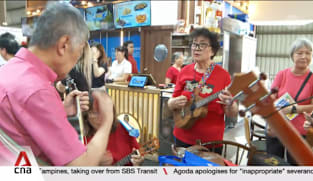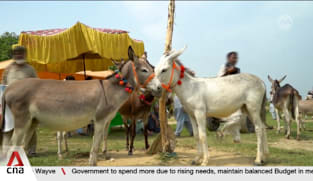Usha Chandradas on Platform Workers Bill
Why have certain types of platform services such as beauty and grooming, caregiving and house-cleaning been excluded from the Platform Workers Bill? NMP Usha Chandradas asked this question in Parliament on Tuesday (Sep 10). She noted that a greater proportion of workers in these areas are female while a greater proportion of those in delivery and ride-hailing tend to be male. So, a good number of female platform workers may not be able to benefit from the protections offered by the new law, she said. Ms Chandradas also pointed out that the design of delivery and ride-hailing platforms may inadvertently result in gender imbalances being perpetuated. For example, workers who need to suddenly cancel assignments due to unpredictable caregiving responsibilities, or choose to decline jobs late at night or in areas they feel are unsafe, may be penalised or lose out on earning opportunities. She hoped the Government would address this issue when dealing with platform operators. Finally, she said the Bill recognises that certain types of freelancers do require legislative help in safeguarding their rights - rights which would normally be protected only in traditional employer-employee relationships. She asked if the Government would consider extending legislative protection to more groups of freelancers in future, particularly in the arts community which “can also be quite a vulnerable group”.
Why have certain types of platform services such as beauty and grooming, caregiving and house-cleaning been excluded from the Platform Workers Bill? NMP Usha Chandradas asked this question in Parliament on Tuesday (Sep 10). She noted that a greater proportion of workers in these areas are female while a greater proportion of those in delivery and ride-hailing tend to be male. So, a good number of female platform workers may not be able to benefit from the protections offered by the new law, she said. Ms Chandradas also pointed out that the design of delivery and ride-hailing platforms may inadvertently result in gender imbalances being perpetuated. For example, workers who need to suddenly cancel assignments due to unpredictable caregiving responsibilities, or choose to decline jobs late at night or in areas they feel are unsafe, may be penalised or lose out on earning opportunities. She hoped the Government would address this issue when dealing with platform operators. Finally, she said the Bill recognises that certain types of freelancers do require legislative help in safeguarding their rights - rights which would normally be protected only in traditional employer-employee relationships. She asked if the Government would consider extending legislative protection to more groups of freelancers in future, particularly in the arts community which “can also be quite a vulnerable group”.



















